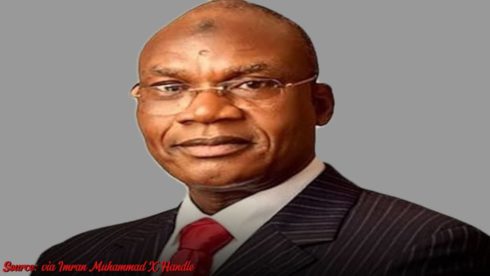Education Minister, Tahir Mamman, has issued a directive to university students across the nation, advising them to remain on campus during upcoming planned nationwide protests. This guidance comes as tensions rise and concerns grow over potential safety risks associated with the demonstrations.
The directive, communicated through the National Universities Commission (NUC), underscores the government’s commitment to ensuring the safety and security of students while respecting the constitutional right to peaceful protest. As universities brace for potential unrest, this development marks a significant moment in the ongoing dialogue between educational institutions, students, and the government.
Minister of Education, Tahir Mamman: NUC’s Official Statement, A Call for Caution
The National Universities Commission, acting as the intermediary between the Ministry of Education and university administrators, released an official statement on Monday. Signed by the acting SecretaryExecutive, Chris Maiyaki, the document was addressed directly to Vice-Chancellors of universities across Nigeria, emphasizing the gravity of the situation.
This formal communication serves as a clear indication of the government’s stance on the matter, highlighting the delicate balance between maintaining order and respecting civil liberties. The NUC’s involvement underscores the collaborative approach being taken to address the potential challenges posed by the planned protests.
Minister of Education, Tahir Mamman: Balancing Rights and Safety, The Government’s Perspective
In its statement, the NUC acknowledged the fundamental right of Nigerian citizens to engage in peaceful protest. This recognition aligns with the country’s democratic principles and constitutional guarantees. However, the commission also expressed concerns about the potential risks to staff, students, and university property should protests occur on or near campuses.
This dual acknowledgment highlights the complex task faced by educational institutions and government bodies in navigating periods of social unrest. By explicitly stating its awareness of protest rights while emphasizing safety concerns, the government aims to strike a balance between respecting civil liberties and maintaining order.
Minister of Education, Tahir Mamman, Proactive Measures, The Role of Vice-Chancellors
Minister Tahir Mamman’s directive places significant responsibility on the shoulders of university Vice-Chancellors. These academic leaders are now tasked with implementing proactive measures to ensure the security and safety of their respective university communities, including both staff and students.
This approach emphasizes the importance of local leadership in managing potential crises. By empowering Vice-Chancellors to take preemptive action, the government aims to create a more agile and responsive system for addressing safety concerns at the institutional level.
The Broader Context: Nationwide Protests and University Life
The planned nationwide protests, organized by unspecified groups, have become a focal point of concern for educational authorities. While the exact nature and motivations behind these demonstrations remain unclear, their potential impact on university operations and student life is significant enough to warrant official intervention.
This situation raises important questions about the intersection of civic engagement, academic freedom, and campus safety. As universities grapple with these complex issues, the response to this directive may set precedents for how similar situations are handled in the future.
Looking Ahead: Backlashes for Student Activism and Campus Policies
As the situation unfolds, the impact of this directive on student activism and campus policies remains to be seen. While aimed at protecting students, the advice to remain on campus during protests may be viewed by some as an attempt to stifle political engagement or limit freedom of movement.
Moving forward, universities may need to develop more comprehensive strategies for balancing safety concerns with the rights and desires of students to participate in civic activities. This incident could potentially spark broader discussions about the role of higher education institutions in fostering civic engagement while maintaining a secure learning environment.
Table of Contents
Discover more from OGM News NG
Subscribe to get the latest posts sent to your email.














